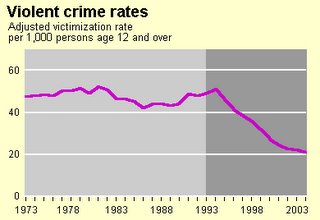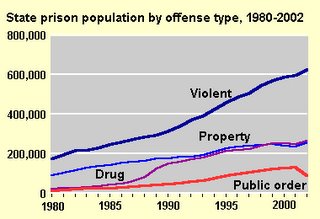Read the whole thing, but some excerpts from
David Warren's latest from Canada:
Our Kandahar detachment does not consist of “peacekeepers”. A person must have his brains scrambled for breakfast to think it does. For the peace is being imposed. Our guys are not “honest, impartial middlemen” between the Taliban savages and the elected government of Afghanistan. We are there to serve the latter by eliminating the former. It is a kill or be killed proposition. We are there to protect the common people; and therefore to kill the common enemy.
The pansies of the Left are already fibrillating: “We didn’t think this was going to be a war!” Grow up, little people.
A great start that just gets better:
There is no neutral ground between civilization and barbarism. There is not even a boundary. You are either going up, or you are coming down.
In the words of W.H. Auden:
Recalled from the shades to be a seeing being,
From absence to be on display,
Without a name or history I wake
Between my body and the day.
Do you follow? Let me explain. Beneath the garments of our civility, we are naked men. The conditions for our survival must never be forgotten. We were not born in our clothing. Every fragment of our comfortable world was purchased at risk, from the wilderness of nature, and the wilderness in the heart of man. Our ancestors built and rebuilt, all ultimately, as Nehemiah built Jerusalem wall -- sword in one hand, trowel in the other.
To follow from my remarks on Saturday, which were chiefly translated from Wafa Sultan’s magnificent Arabic, there is not and never was a “clash of civilizations”. It is in the nature of things that only one civilization can prevail at one time: that the inferior will aspire to the superior, and be assimilated to it; or else, it will aspire to bring the superior down. The clashes are thus between higher and lower; between civilization and barbarism in their many degrees; and barbarism prevails where its hard beak meets the soft mush of decadence.
For part of the superiority of the high civilization is to be found in its self-confident ability to defend itself, and to uphold civilized norms. We maintain and extend the frontiers of our civilization; or else they shrink. The Western model of civilization, with its openness and freedom, is flawed, as all civilizations are flawed. We may now be succumbing to our decadence, our death wish. But what remains is all we have against the “day of outrage when hellikins cavort through ruined drawing-rooms” (Auden again).
...
Against barbarism, the civilized must never be soft. Against barbarism, the civilized must be ferocious.
I learned this long ago, implausibly enough, partly from reading Mad Magazine.
I still remember reading one of their pieces about 30 years ago that spoke historically about ancient civilizations such as Rome falling to "lean and hungry barbarians from the East."
They then ended with a panel depicting a vaguely asian-looking "lean and hungry barbarian from the East" with an automatic rifle, a Mao-ish uniform, and a big smile, easily knocking over a bewildered-looking Weebil-shaped fat and overly-contented Westerner with a simple poke of a finger.
Or maybe it was "Crack'd" and not "Mad"...
The barbarians are always at the Gates.
how to end this threat of anarchy spilling out of the Third World?
This is discussed at
Belmont Club.
Some interesting points were made there:
ShrinkWrapped said...
Excellent post, Wretchard, and may I add to it that one place the left-wing elites in the West intersect with the Islamists is in their (unconscious) support for anarchy. The elites typically support the free expression of instinctual drives (eg, there should be no controls on people's sexual behavior, "anything goes", revolutionary violence is admirable, etc.) When young men are raised without being civilized (learning restraint, frustration tolerance, delayed gratification) they become agents of anarchy, taking what they want when they want, as long as they are able.
4:13 AM
WildMonk said...
Another excellent post. Shrinkwrapped: I'm not sure the left-wing elites understand (or permit themselves to see) that there is a fundamental difference between a healthy society's ability to handle some segment of their society that practices 'fashionable' anarchy and a sick society's penchant for falling victim to it completely. Such studied ignorance, based on equally ignorant theories of cultural relativism, is much to our disadvantage in trying to transform Iraq and other anarchic societies. Excellent comment though!
6:02 AM
Papa Bear said...
Wretchard writes "Anarchy is self-defending, as the failed United Nations relief mission to Somalia in 1990 discovered to its cost. It will appropriate relief supplies, money and aid workers themselves as gang property, the economic basis of its system. Anarchy absorbs violence just as it absorbs relief and even gains strength from it when weapons, designed to disrupt ordered societies, are unleashed on it. "
There is a long-standing choice in human life: you can live as a civilized worker, or as a predator. What you call "anarchy" may be more accurately named "predator society".
A civilization is only viable if it is able to control its predator population (either by caging them, making them go elsewhere, exterminating them, or domesticating them). If the predators become dominant, then work is no longer viable because the predators will take the worker's production. The result is what you call anarchy.
6:03 AM
sax said...
This is precisely what Thomas Barnett argues in his book entitled "War and Peace in the 21st Century"
6:16 AM
Charles Martel said...
The anarchy and chaos imposed by the Left is not dissimilar to that found in Iraq, Syria or Iran. The Left's particular brand of anarchy is a precursor to that found in the aforementioned nations. It is ironic indeed that with all its ostensible commitment to non-violence the Left manages not only to ultimately engender violence but to coddle it along the way.
7:17 AM
Aristides said...
I think this idea of interacting with the rest of the world at arm's reach is a recipe for disaster. I think our options are (for lack of a better world) Imperialism or Barbarism.
In this sense, Fukuyama's labeling of neo-cons as Leninists strikes me as too simplistic. As you know Lenin read Marx's theory of historical determinancy and decided to give history a little artificial boost. Instead of waiting on the "inevitabilities" of industrialism, he wanted to impose them.
Neo-cons believe that democracy is the only stable structure for a society in the long term, because of many reasons which I will not get into. What's intriguing is that embedded in their theory is an "evolutionary" understanding of societal fitness -- that Western democratic liberalism arose after a long string of unlikely contingencies, but that its properties, once realized, gave it certain advantageous traits. These organizational developments allowed Western democratic liberalism to survive in the rough and tumble world of civilizational natural selection.
And now, the neo-cons want to mate this evolutionary winner with a whole host of evolutionary losers. Iraq is our attempt to falsify this theory. How likely is it that a child so begotten will be viable (we do have some examples of success)?
Of course, we may not have a choice, not a true choice. If our options really are Imperialism or Barbarism, we may have to start using our big stick in a copulatory sense -- nurturing the children that survive infant mortality, aborting those that should never be born.
Either way, it's important to understand that the success of the West was an accident of nature. It emerged out of a complex series of events that are absolutely unique and utterly non-repeatable. To think of our progression as an evolutionary law--and therefore to sit back and wait for other societies to metamorphose into what we would define as success--is folly.
We need to cross-pollinate. If we don't, we are going to have to eliminate.
It might just be that simple.
12:27 PM
Neo-neocon said...
Wonderful post. So wonderful I couldn't resist adding to it, including the following description of some of the differences of opinion about the Iraq War:
Perhaps, in the end, that's the greatest difference between those who are hawkish on this war and those who oppose it: the former believe the unleashed chaos was not avoidable, and needed to be dealt with sooner rather than later, because dealing with it was inevitable and waiting would only allow those forces to build....In the end, one's position on the matter probably depends on how one diagnoses the disease. Was it a small set of carbuncles that could be easily lanced (police action), or a chronic illness that just needed some intervention here and there but nothing drastic (isolationist and/or realpolitik)? Or was it a lethal illness that had probably already metastasized, and needed a strong dose of powerful and dangerous medicine to have any hope of cure (neocon, interventionist)?
I come down on the side of the latter diagnosis.
12:29 PM
Crime is another form of predatory, barbaric behavior that Civilization cannot tolerate, just like terrorism. There's a thread of left-wing thought that just can't see the threat, however, of either.
This blindness is a form of mushy decadence, as David Warren described.
To illustrate with a brief digression, it always gets me how I read AP article after AP article decrying the
"increase" in our prison population -- get this --
"despite" a drop in crime!
From The New York Times on November 8, 2004:
Despite Drop in Crime, an Increase in Inmates
By FOX BUTTERFIELD
The number of inmates in state and federal prisons rose 2.1 percent last year, even as violent crime and property crime fell, according to a study by the Justice Department released yesterday.
The continuing increase in the prison population, despite a drop or leveling off in the crime rate in the past few years...
[It goes on to ponder this "paradox":]
In seeking to explain the paradox of a falling crime rate but a rising prison population...
[and seems to suggest we'd be better off releasing people -- to do what, make crime go down more?]
The morons writing those stories don't seem to grasp
cause and
effect.
That maybe crime goes down because predators are being --
gasp! -- locked up, rather than crime just naturally falling and the big meanie government still throwing harmless pot smokers in jail.
Department of Justice figures on incarceration show the former thesis is correct, and the latter narrative is a myth.
For example, the Justice Dept has found:
Violent crime rate has dropped in every income category by at least 40 percent between 1993 and 2003.
See
this dramatic chart from the Bureau of Justice:

Is this just Demographics, or the effects of Incarceration?
Has the population fraction between the ages of 20 and 30 declined by at least 40% over 10 years? I don't think so. Demographics can only account for about one quarter of that decline (I compute about a 10% relative drop in that population).
But we see incarcerations have gone up.
There are only two cases. In the first case, one believes that whether or not someone becomes a criminal at any point in time is a mostly random variable -- it can happen to anyone, given the proper circumstances.
If that's true, then locking them up doesn't really help, as the remaining people have the same chance as before for going criminal (except for demographics).
In the second case, one believes criminal tendencies become ingrained in someone's character at some point. Thus, locking up those people reduces the overall level of crime, as the remaining population of society is thus less inclined to crime.
Correlation in itself is not causation, but given a theoretical model (case 2 above), correlation lends support, unlike in case 1, which fails to explain the crime rate facts.
Although the prison population climbs, the actual incarceration
rate has levelled off in the last few years, after ramping up steeply from 1980 to 2000.
Which looks to me as a good explanation of why violent crime fell off a cliff after a critical point was crossed around 1990.
Property crime reduction tracks the increase in incarcerations very well all the way back to 1980.

See also
this chart:

The DOJ says:
Over half of the increase in State prison population since 1995 is due to an increase in the prisoners convicted of violent offenses.
The big bump in drug incarceration was in the late 80s. But since 1990, the steepest curve in that chart is the violent offender.
Therefore, the notion that the newly jailed are all just casual pot smokers is a myth.Indeed,
the best single predictor of future criminal behavior is past criminal behavior, especially repeated past criminal behavior that has led to incarceration.
Most serious crime is perpetrated by repeat offenders. It is a way of life for them. The person with a clean record who makes a mistake in judgement usually doesn't go to jail and doesn't get into trouble again.
For example, the DOJ tracked 272,000 inmates who were released in 1994. The average one had been arrested prior to that
15(!) times. Each went on to
commit
3 more arrestible crimes in the next 3 years after their release.
Here's a little statistical thought experiment!
Take any two people chosen at random. Suppose all you know is one has been released from jail recently for stealing, and the other has never been to jail. You are to guess which (if any) will be in jail
within 3 years.If you pick the first person, you will be right about
75% of the time.
If you pick the second person, you'll be right
less than 1% of the time.
And picking neither is only right 25% of the time!
Talk about a
"sure thing"!From the
DOJ:
Released prisoners with the highest rearrest rates were robbers (70.2%), burglars (74.0%), larcenists (74.6%), motor vehicle thieves (78.8%), those in prison for possessing or selling stolen property (77.4%), and those in prison for possessing, using, or selling illegal weapons (70.2%).
And that's just arrests! Think of all the crimes they're doing that they don't even get caught for!
Yes it's possible somebody does a crime out of the blue, but the difference between 1% and 75% is too large to be a statistical accident, and thus one can make policy on that difference that correctly extrapolates into the future.
Given these repeat-offense rates, one can construct a mathematical equation that shows conclusively that keeping those repeat offenders in jail longer (or making sure they get sent there instead of probation), reduces the chance (and hence in the aggregate, the rate) of crime in the community.
And that is indeed what has been observed.
Misguided fools wish to release the criminal and welcome the barbarian, to make them feel good about themselves through ostentatious "tolerance."
We must stop them.








